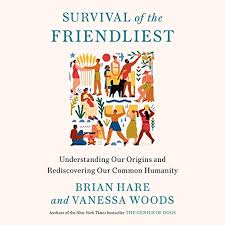
Breaking News
 Ron's Take: The US and Iran War
Ron's Take: The US and Iran War
 Kurdish Boots on the Ground with US/Israeli Air and Drones
Kurdish Boots on the Ground with US/Israeli Air and Drones
 Clinton Epstein Deposition Highlights: Ex-President & Secretary Of State Grilled On Ties...
Clinton Epstein Deposition Highlights: Ex-President & Secretary Of State Grilled On Ties...
Top Tech News
 US particle accelerators turn nuclear waste into electricity, cut radioactive life by 99.7%
US particle accelerators turn nuclear waste into electricity, cut radioactive life by 99.7%
 Blast Them: A Rutgers Scientist Uses Lasers to Kill Weeds
Blast Them: A Rutgers Scientist Uses Lasers to Kill Weeds
 H100 GPUs that cost $40,000 new are now selling for around $6,000 on eBay, an 85% drop.
H100 GPUs that cost $40,000 new are now selling for around $6,000 on eBay, an 85% drop.
 We finally know exactly why spider silk is stronger than steel.
We finally know exactly why spider silk is stronger than steel.
 She ran out of options at 12. Then her own cells came back to save her.
She ran out of options at 12. Then her own cells came back to save her.
 A cardiovascular revolution is silently unfolding in cardiac intervention labs.
A cardiovascular revolution is silently unfolding in cardiac intervention labs.
 DARPA chooses two to develop insect-size robots for complex jobs like disaster relief...
DARPA chooses two to develop insect-size robots for complex jobs like disaster relief...
 Multimaterial 3D printer builds fully functional electric motor from scratch in hours
Multimaterial 3D printer builds fully functional electric motor from scratch in hours
 WindRunner: The largest cargo aircraft ever to be built, capable of carrying six Chinooks
WindRunner: The largest cargo aircraft ever to be built, capable of carrying six Chinooks
Friendliest,' not fittest, is key to evolutionary survival, scientists argue in their new book

Most people assume that Darwin was talking about physical strength when referring to "survival of the fittest," meaning that a tougher, more resilient species always will win out over its weaker counterparts. But what if he didn't mean that at all?
Scientists Brian Hare and Vanessa Woods, both researchers at Duke University's Center for Cognitive Neuroscience, believe something else has been at work among species that have thrived throughout history, successfully reproducing to sustain themselves, and it has nothing to do with beating up the competition.
Their new book, "Survival of the Friendliest: Understanding Our Origins and Rediscovering Our Common Humanity," posits that friendly partnerships among species and shared humanity have worked throughout centuries to ensure successful evolution. Species endure - humans, other animals and plants - they write, based on friendliness, partnership and communication. And they point to many life examples of cooperation and sociability to prove it.

 Tulsi Gabbard Should Resign
Tulsi Gabbard Should Resign
 RNA Crop Spray: Should We Be Worried?
RNA Crop Spray: Should We Be Worried?

